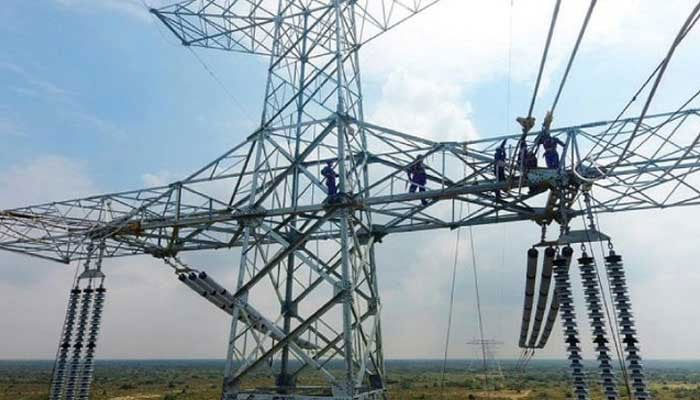Policymakers eye IPP expansion amid circular debt concerns
ISLAMABAD: Despite the burgeoning power-sector circular debt, the government is going ahead with plans to install additional IPPs, reveals the Pakistan Economic Survey 2023-24.
The survey, released on June 11, highlights the imminent completion of five multiple fuel-based IPPs with a combined capacity of 1,066MW expected by 2024-25. This move comes amid concerns about the country’s over Rs2.6 trillion circular debt burden.
The survey points out the government’s continuation of flawed policies, inundating the nation with IPPs and burdening consumers with substantial debt. The Private Power and Infrastructure Board (PPIB) has supervised the development of 100 IPPs with a combined capacity of approximately 24,958MW, representing over half of the nation’s total installed capacity. Additionally, five more IPPs are in the final stages of completion, hinting at the further accumulation of capacity payments in the future.
Despite the total installed electricity capacity reaching 42,131MW by March 2024, the country utilizes less than half of its potential, with consumers bearing the brunt of payments to non-generating power plants, amounting to 70 per cent of their bills.
Under the PPIB’s purview, 24 upcoming power generation projects with a total capacity of 7,460MW are slated for completion by 2032. Furthermore, the Integrated Generation Capacity Expansion Plan (IGCEP) 2022 targets finalizing 12 ongoing IPPs, totalling 1,563MW by 2024-26.
The survey underscores a notable shift in Pakistan’s electricity generation mix, with thermal power’s dominance declining in recent years. As of March 2024, hydel, nuclear, and renewable sources collectively accounted for 54.1 per cent of total electricity generation, reflecting a move towards cleaner energy sources.
In the oil and gas sectors, the survey notes a decrease in petroleum product consumption during July-March FY 2024 due to elevated fuel prices. However, it omits addressing the surge in smuggled oil from Iran during the present administration, a concern raised by the legal oil industry.
Despite declining demand, gas consumption totalled 3,207 million cubic feet per day (MMCFD) in July-March, including 695 MMCFD of regasified liquefied natural gas (RLNG). The government’s continued expansion of gas pipelines exacerbated price hikes and shortages for existing consumers, the survey adds. The survey concludes with a forward-looking projection from the IGCEP-2022, indicating a shift away from imported fossil fuels in new power plants. By 2030, the share of electricity from hydel, wind, and solar sources is expected to rise, culminating in a total share of green electricity of approximately 59 per cent.
The government’s focus on strengthening the regulatory framework and incentivizing private-sector investment in renewable energy aims to bolster energy security and mitigate climate change. The PPIB is overseeing 24 power generation projects, including 22 renewable projects, with a cumulative installed capacity of 7,460MW slated for completion by 2032.
-
 King Charles Speaks Out Over Andrew's Scandal: 'Stand Ready To Help Police'
King Charles Speaks Out Over Andrew's Scandal: 'Stand Ready To Help Police' -
 Dax Shepard Recalls Horrifying Accident That Almost Killed Him
Dax Shepard Recalls Horrifying Accident That Almost Killed Him -
 Logan Paul's Bodyguard Hits Fan On Super Bowl Day
Logan Paul's Bodyguard Hits Fan On Super Bowl Day -
 Epstein Files: Anne Hathaway Mentioned As Highly Desired Guest For Bill Gates?
Epstein Files: Anne Hathaway Mentioned As Highly Desired Guest For Bill Gates? -
 Prince Harry Under A Lot Of Stress As Meghan Markle Makes Bizarre Demands
Prince Harry Under A Lot Of Stress As Meghan Markle Makes Bizarre Demands -
 Princess Beatrice, Eugenie's Subtle Break From Disgraced Parents Exposed
Princess Beatrice, Eugenie's Subtle Break From Disgraced Parents Exposed -
 Baby Left In Running Bathtub Dies After Father ‘forgets’ Him
Baby Left In Running Bathtub Dies After Father ‘forgets’ Him -
 King Charles Takes A Major Step To Keep Horrified Prince William Out Of The Loop On Andrew: Insider
King Charles Takes A Major Step To Keep Horrified Prince William Out Of The Loop On Andrew: Insider -
 Taylor Swift Set To Make Biggest Cut From Her Wedding Guest: Blake Lively Or Ryan Reynolds
Taylor Swift Set To Make Biggest Cut From Her Wedding Guest: Blake Lively Or Ryan Reynolds -
 Prince William Meets Saudi Crown Prince Mohammed Bin Salman
Prince William Meets Saudi Crown Prince Mohammed Bin Salman -
 Brooklyn Beckham Brutally Cuts Off Inner Circle Amid Feud With David, Victoria
Brooklyn Beckham Brutally Cuts Off Inner Circle Amid Feud With David, Victoria -
 Kaley Cuoco Reveals Why Fiance Tom Pelphrey Sleeps In Seperate Room
Kaley Cuoco Reveals Why Fiance Tom Pelphrey Sleeps In Seperate Room -
 Ghislaine Maxwell Will Not Answer Congress Questions On Epstein
Ghislaine Maxwell Will Not Answer Congress Questions On Epstein -
 Kensington Palace Announces Prince William's Arrival In Saudi Arabia
Kensington Palace Announces Prince William's Arrival In Saudi Arabia -
 ‘Andrew Crisis Follows King Charles Everywhere Now’
‘Andrew Crisis Follows King Charles Everywhere Now’ -
 Jennifer Aniston Already Decided Her Wedding Dress?
Jennifer Aniston Already Decided Her Wedding Dress?




